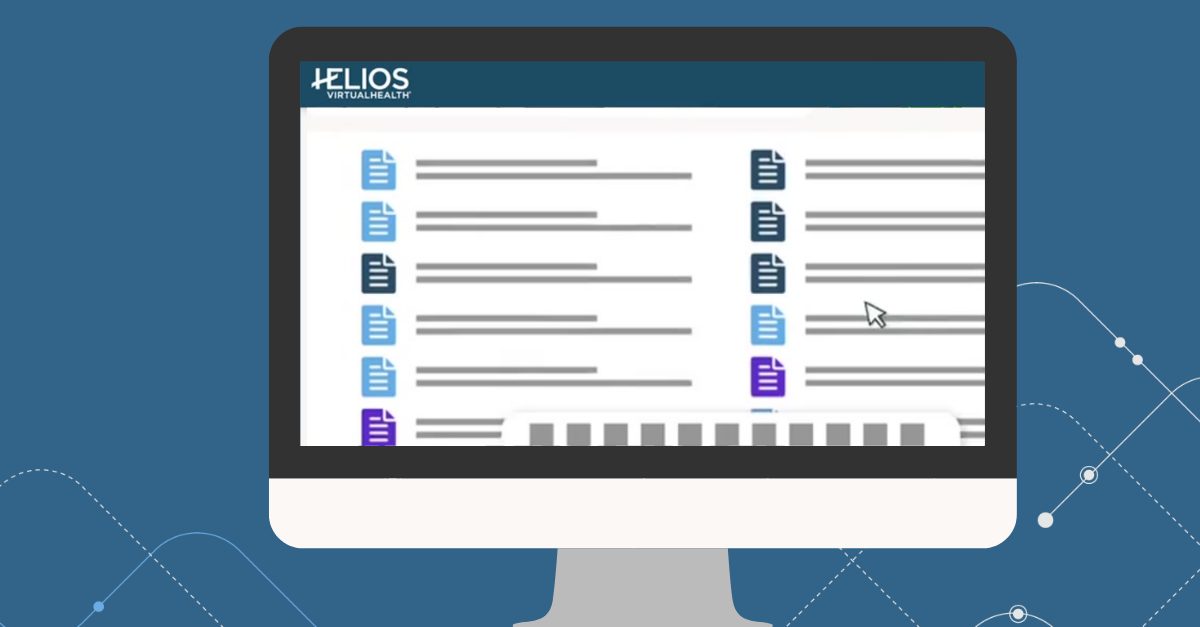Assessments are a critical component of care and case management programs.
Assessments help care and case managers quickly identify the health and social needs of members, flag at-risk individuals, and help teams prioritize and effectively handle their caseloads
When assessment response data is incorporated into member views and care management workflows, this can help automate the generation of the next best actions (task assignment, outreach, etc.).
Below we quickly look at how assessments, that incorporate rules, can help streamline care management, reduce administrative burden, and prevent costly events such as hospital readmissions.
Using Rule-Driven Assessment in Care and Case Management Workflows
Automations via workflows and intelligent analysis are part of the modern healthcare management structure. To be more efficient, care and case management teams need to be able to quickly identify high-priority individuals or eligibility for programs and services.
In HELIOS, assessments are a configurable part of our workflows.
1. Assessments can be used to help automate and drive downstream workflows – they can help auto-generate care plan components (as just one example).
2. Responses deliver insights that can trigger tasks, risk flags, and notifications to care managers based on configured criteria and help automate next-step tasks and care plan adjustment recommendations.
3. Assessments can have rules for scoring, branching auto-population, and mapping built-in to improve the efficiency and productivity of the care team.
4. Assessments can also be automatically provided to /suggested for members based on a clinical event that has triggered the need for a member to complete one or more assessments.
How it can all come together to drive care management efficiencies: A workflow is initiated with a referral based on a clinical event, screening output, or social determinant of health, which auto-triggers outreach and consent to participate in care management, assessment(s), and care/service plan generation.
Want to learn about HELIOS out-of-the-box assessments? Our team can show you available assessment and screening tools, as well as how to create custom ones for specific cohorts or state needs.
Automated Tasks and Notifications for Better Patient Analysis
Member health is always evolving. That’s why many organizations have multiple assessments and may reassess members routinely.
To help care teams with this, HELIOS has a rules engine that can auto-create tasks for individuals and/or departments for assessment follow-up. Tasks can also be configured for reassessment due dates.
This removes the worry and burden for care teams to remember when to assign specific assessments to specific members. It’s now much easier to capture patient health needs and automatically update care needs based on new responses.
Risk Assessment Can Be More Efficient
HELIOS incorporates real-time multi-dimensional risk stratification and is capable of overlapping risk stratification algorithms that encompass any fields captured by the system. This includes costs, care gaps, adherence, assessments, and other risk scores.
Where assessments can help is specifically related to risk scores. Scoring rules can be added to an assessment and based on responses, a cumulative assessment score is calculated. These scores can determine risk scores that can then lead to the auto-assignment of members to a care team based on configuration as well as tasking based on data points such as assessment requirements based on population and need.
Moreover, risk scores can be updated automatically based on the completion of an assessment or screening. This makes it easier to assess at-risk patients and determine prioritization.
Autogenerate Care Plans and Patient Education
When assessments are completed in HELIOS, responses can autogenerate care plan elements based on the assessment responses.
The HELIOS care plan rules engine automatically maps assessment responses to care plan needs and problems, reducing the burden on care managers and enabling a more personalized whole-person care approach.
Plus, assessment responses can help identify when health education may be needed. For example, HELIOS’ educational and clinical workflows can be configured specifically to provide ongoing support, disease/condition management, and education promoting health and wellness. Health and disease-specific education is available to HELIOS users through one of our leading partners, such as Healthwise or WebMD/Krames, and you can upload organization-specific education materials. Once identified that materials are needed for a specific member, the materials can be shared directly through the HELIOS platform via its Member Portal, transmitted to a client’s own member portal, or provided through member-friendly mobile applications
What Assessment Capabilities Does HELIOS Have?
HELIOS has a large library of pre-configured, industry-standard assessments and screening tools built to meet evidence-based clinical best practices and standards. Included in this library are general screening, condition-specific, behavioral health, and population-level assessments and instruments. Clients can also upload their own.
HELIOS also offers a market-leading assessment template builder that allows our users unparalleled flexibility and power in customizing existing and creating new screenings/assessments.
- Generate fully custom assessments, including custom HRAs, IHSs, CNAs, and many other assessment types using only front-end tools.
- Build custom assessments in HELIOS using easy point-and-click tools
- Assessments can be highly complex, incorporate multiple scoring fields, branching, scoring, mapping, and auto-population logic, utilize both textual and graphical elements, support multiple sections and electronic signatures, and capture responses based on the configurable question format.
Plus. HELIOS allows for the use of different screening tools/templates based on enrollee type or presenting need. The platform can also be configured to provide access to assessments and forms to others utilizing the Member and Care Provider portals, as well as trigger tasks with the appropriate priority based on screening type and/or based on answers to specific questions within that screening and allow providers to view screenings and assessments conducted for the enrollee, subject to the appropriate access levels being in place for the provider.
Want to see HELIOS in action? Get a quick demonstration by our team to see how our 90% configurable platform uses workflows and assessments to simplify and automate care management.


